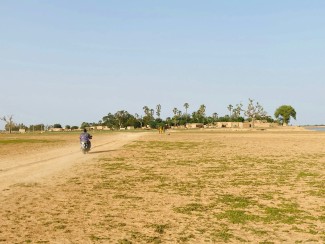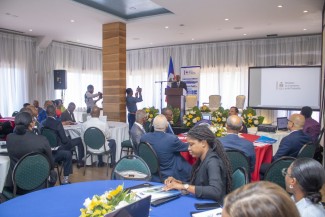|
|
Bangladesh is preparing to graduate from the category of least developed countries (LDCs). Robust multi-year economic growth of more than 6-7% has helped this South Asian nation make remarkable progress in reducing extreme poverty from 44.2% in 1991 to 13.9% in 2017. In parallel, life expectancy, literacy rates and per capita food production have increased significantly. Rapid growth enabled Bangladesh to reach the lower middle-income country status in 2015; it now aspires to become an upper-middle income country by its 50th anniversary in 2021.
Trade has been at the heart of this success story. Exports of textiles and garments are driving integration into the global economy, with new products becoming part of the country’s export basket. Will Bangladesh be able to continue to rely on trade for increased growth? Will conditions remain for other LDCs to follow?
For full article, please visit OECD Development Matters here.
----------
This post was commissioned for the EIF policy series on aid for trade in the lead up to the 2019 Global Review and was published in partnership with OECD Development Matters.
----------
* Anabel González is Nonresident Senior Fellow at the Peterson Institute for International Economics; Former Costa Rica Minister of Trade, World Bank Senior Director for Trade & Competitiveness, and World Trade Organization Director for Agriculture.
--------
This policy series has been funded by the Australian Government through the Department of Foreign Affairs and Trade. The views expressed in this publication are the author’s alone and are not necessarily the views of the Australian Government.
Header image - ©UPU/Sophia Paris via Flickr Creative Commons Attribution-NoDerivs 2.0 Generic (CC BY-ND 2.0) license.
If you would like to reuse any material published here, please let us know by sending an email to EIF Communications: eifcommunications@wto.org.



